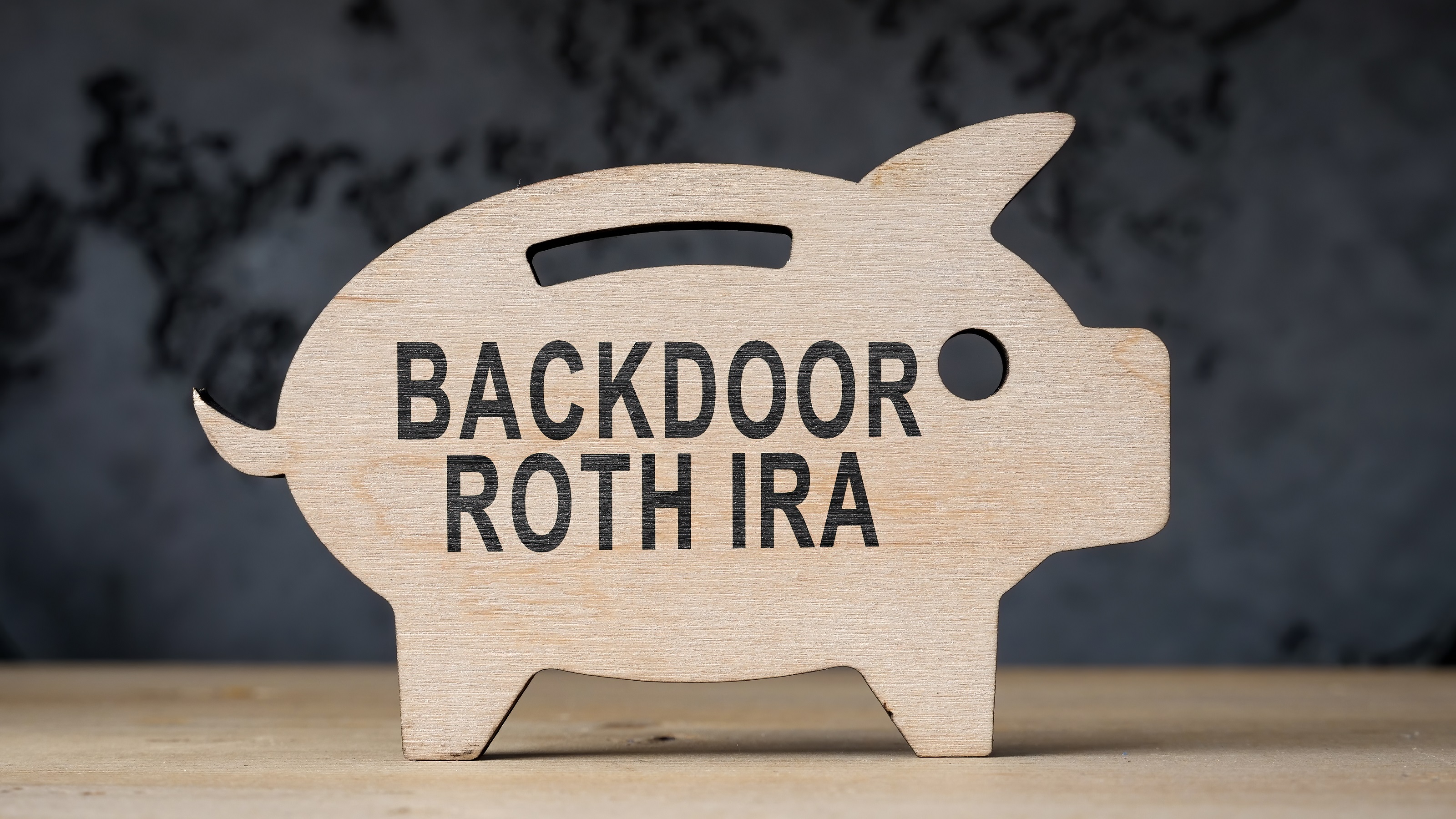What Single Women Need to Know About Money
Women often face a savings shortfall as they approach retirement. The goal is to catch up as soon as possible.


Profit and prosper with the best of Kiplinger's advice on investing, taxes, retirement, personal finance and much more. Delivered daily. Enter your email in the box and click Sign Me Up.
You are now subscribed
Your newsletter sign-up was successful
Want to add more newsletters?

Delivered daily
Kiplinger Today
Profit and prosper with the best of Kiplinger's advice on investing, taxes, retirement, personal finance and much more delivered daily. Smart money moves start here.

Sent five days a week
Kiplinger A Step Ahead
Get practical help to make better financial decisions in your everyday life, from spending to savings on top deals.

Delivered daily
Kiplinger Closing Bell
Get today's biggest financial and investing headlines delivered to your inbox every day the U.S. stock market is open.

Sent twice a week
Kiplinger Adviser Intel
Financial pros across the country share best practices and fresh tactics to preserve and grow your wealth.

Delivered weekly
Kiplinger Tax Tips
Trim your federal and state tax bills with practical tax-planning and tax-cutting strategies.

Sent twice a week
Kiplinger Retirement Tips
Your twice-a-week guide to planning and enjoying a financially secure and richly rewarding retirement

Sent bimonthly.
Kiplinger Adviser Angle
Insights for advisers, wealth managers and other financial professionals.

Sent twice a week
Kiplinger Investing Weekly
Your twice-a-week roundup of promising stocks, funds, companies and industries you should consider, ones you should avoid, and why.

Sent weekly for six weeks
Kiplinger Invest for Retirement
Your step-by-step six-part series on how to invest for retirement, from devising a successful strategy to exactly which investments to choose.
A number of years ago, I wrote a book about women and money called Think Single! The title wasn't a reference to marital status. Rather, it counseled all women to think independently about their finances.
But single women do have special financial issues, as summed up by Kristan McMahon, a 42-year-old lawyer from Annandale, Va.: "It's great that I'm the only person I have to take care of, but it's scary that I have no one to take care of me. I am my own safety net."
There are more single women than single men in the U.S. -- in 2014, 53% of unmarried residents 18 and older were women, according to the Census Bureau -- and statistically, women live longer, which brings its own concerns. "Who do you ask to handle things in an emergency if you don't have a spouse or kids to back you up?" says Jennifer Robinson, a single public relations executive in New York City.
From just $107.88 $24.99 for Kiplinger Personal Finance
Become a smarter, better informed investor. Subscribe from just $107.88 $24.99, plus get up to 4 Special Issues

Sign up for Kiplinger’s Free Newsletters
Profit and prosper with the best of expert advice on investing, taxes, retirement, personal finance and more - straight to your e-mail.
Profit and prosper with the best of expert advice - straight to your e-mail.
Women who have been widowed or divorced may have access to other resources, but women who have never married are on their own. And the cost of living for a single person can easily be more than half that of a married couple. "I pay the same rent as the people next door with two incomes," says Robinson.
Women often face income and savings shortfalls as they approach retirement, says Kimberly Foss, a certified financial planner in Roseville, Calif. Foss's goal is to "get them as caught up as possible."
There's no magic bullet, so single women need to be even more focused on following basic financial advice. For example, Foss recommends that her female clients have 12 to 18 months of cash in reserve rather than the traditional 6 to 12 months. "It may take you longer to find the next job or recover from a crisis, and you have no other source of income," she says. For the same reason, disability insurance is critical for single women while they're working (see Why You Need Disability Coverage), as is long-term-care insurance or some other backup plan for when they get older.
Buying financial security can be an expensive proposition, so one of my neighbors has a contingency plan: Turn her home at some future date into a group house, à la The Golden Girls.
Start young. It's best to start to "think single" when you're young so that you can take advantage of time and the magic of compound interest. "Save, save, save," says Sheryl Garrett, founder of the Garrett Planning Network. She recommends putting 5% of your paycheck into a retirement account and 5% into a savings account. "The 10% figure is meaningful but not so painful that people can't stick with it," says Garrett. A millennial who craves experiences might be well served to take $5,000 at age 25 and open a Roth IRA before setting off on that trip around the world, advises Foss.
Robinson wishes she had been more diligent about following that advice. "I made every mistake," she says, such as cashing out a 401(k) account when she was younger to move to Washington, D.C. Now she's making up for lost ground by contributing the $24,000 annual maximum to her 401(k), including the $6,000 catch-up contribution for people 50 and older. "I'm trying to balance the financial wherewithal to be cared for later in life with living in the moment," she says, and she's sharing her experiences with the young women in her office.
McMahon did follow the advice of her parents, who "instilled great spending and saving habits." She squirreled away incentive bonuses she earned during nine and a half years of working for Verizon's antitrust practice, which gave her a cushion to leave her job. She hopes to begin a new career with a nonprofit or an association. "Healthy savings brings peace of mind," she says. And opportunities.
TAKE OUR QUIZ: Are You Saving Enough for Retirement?
Profit and prosper with the best of Kiplinger's advice on investing, taxes, retirement, personal finance and much more. Delivered daily. Enter your email in the box and click Sign Me Up.

Janet Bodnar is editor-at-large of Kiplinger's Personal Finance, a position she assumed after retiring as editor of the magazine after eight years at the helm. She is a nationally recognized expert on the subjects of women and money, children's and family finances, and financial literacy. She is the author of two books, Money Smart Women and Raising Money Smart Kids. As editor-at-large, she writes two popular columns for Kiplinger, "Money Smart Women" and "Living in Retirement." Bodnar is a graduate of St. Bonaventure University and is a member of its Board of Trustees. She received her master's degree from Columbia University, where she was also a Knight-Bagehot Fellow in Business and Economics Journalism.
-
 The Cost of Leaving Your Money in a Low-Rate Account
The Cost of Leaving Your Money in a Low-Rate AccountWhy parking your cash in low-yield accounts could be costing you, and smarter alternatives that preserve liquidity while boosting returns.
-
 I want to sell our beach house to retire now, but my wife wants to keep it.
I want to sell our beach house to retire now, but my wife wants to keep it.I want to sell the $610K vacation home and retire now, but my wife envisions a beach retirement in 8 years. We asked financial advisers to weigh in.
-
 How to Add a Pet Trust to Your Estate Plan
How to Add a Pet Trust to Your Estate PlanAdding a pet trust to your estate plan can ensure your pets are properly looked after when you're no longer able to care for them. This is how to go about it.
-
 My Four Pieces of Advice for Women Anxious About Handling Money
My Four Pieces of Advice for Women Anxious About Handling MoneyTalking about money can help you take control of your finances.
-
 10 Retirement Tax Plan Moves to Make Before December 31
10 Retirement Tax Plan Moves to Make Before December 31Retirement Taxes Proactively reviewing your health coverage, RMDs and IRAs can lower retirement taxes in 2025 and 2026. Here’s how.
-
 The Rubber Duck Rule of Retirement Tax Planning
The Rubber Duck Rule of Retirement Tax PlanningRetirement Taxes How can you identify gaps and hidden assumptions in your tax plan for retirement? The solution may be stranger than you think.
-
 What Does Medicare Not Cover? Eight Things You Should Know
What Does Medicare Not Cover? Eight Things You Should KnowMedicare Part A and Part B leave gaps in your healthcare coverage. But Medicare Advantage has problems, too.
-
 QCD Limit, Rules and How to Lower Your 2026 Taxable Income
QCD Limit, Rules and How to Lower Your 2026 Taxable IncomeTax Breaks A QCD can reduce your tax bill in retirement while meeting charitable giving goals. Here’s how.
-
 Estate Planning Checklist: 13 Smart Moves
Estate Planning Checklist: 13 Smart Movesretirement Follow this estate planning checklist for you (and your heirs) to hold on to more of your hard-earned money.
-
 Backdoor Roth IRAs: Good for Wealthy Retirees?
Backdoor Roth IRAs: Good for Wealthy Retirees?Financial Planning A backdoor Roth IRA is a tax loophole that enables wealthier individuals to earn tax-free income. But it's complicated.
-
 Buying Annuities in Your 401(k)
Buying Annuities in Your 401(k)Financial Planning More plans are offering annuities that could provide income in retirement. Here’s what you need to know.